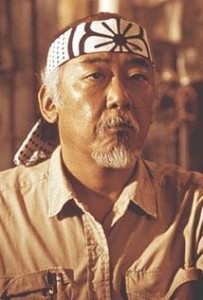
My dad said that the best classroom was a teacher and a student sitting on a log, a bit ironic given that he was one of the pioneers of computer assisted instruction. Computers are great at helping you do the drills to learn material, but not so good at helping you figure out how to apply them. It’s like teaching someone to saw, hammer and chisel, and then setting them loose on a pile of lumber and expecting him to build a house. They have all the skills to be a carpenter right? Providing the skills without the understanding of how they work together – the context – is a recipe for frustration.
I’ve been involved in mentorship programs for a number of years now, and am a strong (if quiet) advocate. Mentorship programs are the best way to learn the tools and techniques to help people get difficult tasks done. School is a great way to learn about tools and systems, mentorship helps figure out the (many) different ways to accomplish your objectives. Coming back to the log, there are two people at the ends, and there is a bit of a minefield on what you call them. One end of the log is the Mentor – this is the more experienced person. If it’s my log, the other end holds a protégé.
It’s worth a cautionary word to note that a lot of programs now call this person the “mentee”. The definition of a protégé (from google) is “a person who is guided and supported by an older and more experienced or influential person.” As an alternate dictionary.com provides a different definition: “a person under the patronage, protection, or care of someone interested in his or her career or welfare.” The level of political correctness in your organization is likely to influence which word you are allowed to use (at one company I was informed that if our program proposed the word protégé then there would be no mentorship program). Your mileage may vary, but terminology matters a lot less if you are involved in a program where the Mentor cannot influence the work situation of the protégé.
 Over the years I put together a significant amount of material, from reading lists (including brief overviews) and templates to study plans and discussions around specific topics, and as this gets moved onto this site I may need to embed links to make access to these materials easier. This is taking longer than I originally anticipated, since today’s “me” is finding a lot to criticize in the assumptions and interpretations of the “me” from years past.
Over the years I put together a significant amount of material, from reading lists (including brief overviews) and templates to study plans and discussions around specific topics, and as this gets moved onto this site I may need to embed links to make access to these materials easier. This is taking longer than I originally anticipated, since today’s “me” is finding a lot to criticize in the assumptions and interpretations of the “me” from years past.
Regardless of what you think a mentor should look like, or whether you call them “coach” or your “accountability check” almost every successful person I have dealt with closely in the last decade has attributed one or more mentors with their success.
«Image of Yoda ©Lucasfilm Ltd.»
«Image of Pat Morita (portraying Mr. Miyagi) from IMDB»